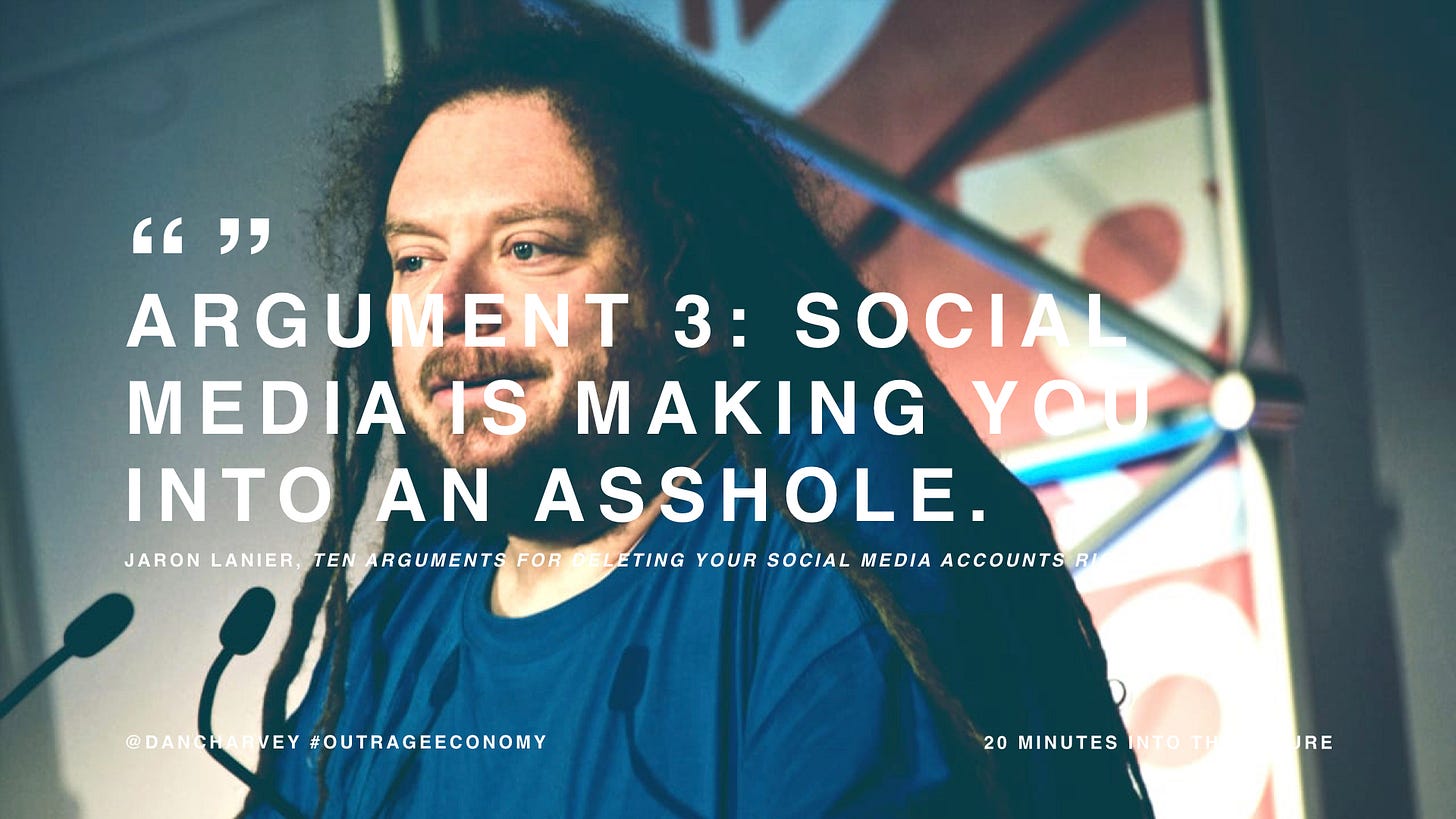
Outrage isn’t just more prevalent and potent online but it’s also much more performative. This could be a problem if it creates collective illusions of public outrage, where everyone is expressing it but few are actually feeling it. And that’s likely a real problem because of something called the availability heuristic. It is a shortcut for our brains which makes us believe: “If it comes to mind easily, it must be true.” It’s a science-y way of saying “perception is reality.”
2016 was the 6th time Trump explored running for president. He also considered it in 1987, 2000, 2004, and 2011. In 1999 he ran as a Reform Party candidate, testing his platform and evaluating the response, and eventually deciding he couldn’t win. After that failure Newsweek noted there simply wasn’t enough outrage in the country to propel an independent candidate to victory.
Outrage defined the 2016 campaign: the more outrageous his words, the more coverage he received. The more coverage he received, the more viable his candidacy became. The analytics firm Mediaquant estimated that between October 2015 and November 2016, Trump received $5.6 Billion dollars in “free” earned media from this strategy, three times his nearest rival.
Zeynep Tufekci is one of the best minds exploring how social media effects politics. She’s said: “Donald Trump excels at using Twitter to capture attention. But his campaign also excelled at using Facebook as it was designed to be used by advertisers, testing messages on hundreds of thousands of people and microtargeting them with the ones that worked best. Facebook had embedded its own employees within the Trump campaign to help it use the platform effectively (and thus spend a lot of money on it), but they were also impressed by how well Trump himself performed. In later internal memos Facebook would dub the Trump campaign an “innovator” that it might learn from.”
Ann Landers was one of America’s most famous advice columnists (what you in the UK call an agony aunt). She said “hanging onto resentment is letting someone you despise live rent-free in your head.” “Living rent-free” has become a popular meme and insultof late because it so perfectly expresses our fears about the outrage economy and the people who thrive in it.
Outrage breeds resentment. And we live in deeply resentful times: Here in the UK Remainers resent Leavers, The North resents the South, Nationalists resent immigrants, Whites resent people of color, Men resent women, etc. etc.
It even makes us resent ourselves. It’s turning us all into assholes. That’s argument 3 out of Jaron Lanier’s Ten Arguments for Deleting Your Social Media Accounts Right Now. The others are:
You are losing your free will
Quitting social media is the most finely targeted way to resist the insanity of our times
social media is undermining truth
social media is making what you say meaningless
social media is destroying your capacity for empathy
social media is making you unhappy
social media doesn’t want you to have economic dignity
social media is making politics impossible
and social media hates your soul
P.S.: I have a proposal to speak about this topic at SXSW. If you could sign up and vote for it I’d be appreciative. Thanks!
File under: #outrageeconomy #weareallassholesnow
Next week: What can we do to fix all this shit? Because we have to fix it. Time to talk about new patterns, new networks, and new models.



